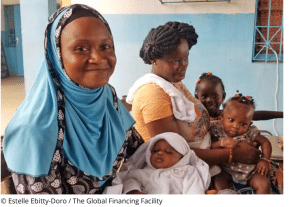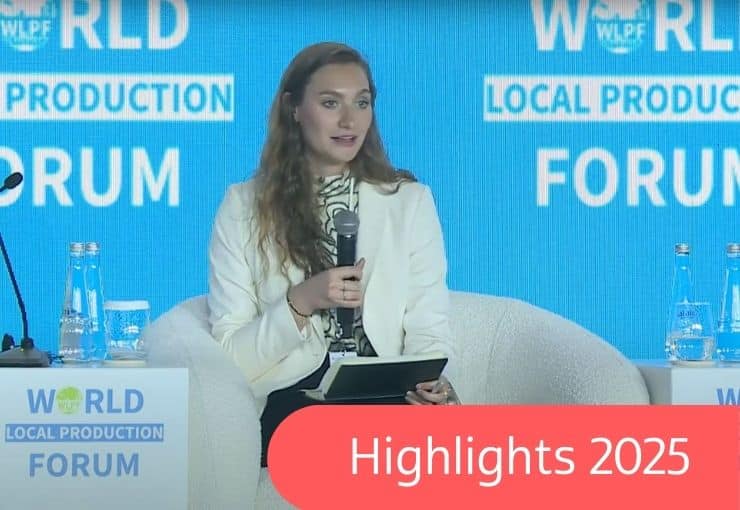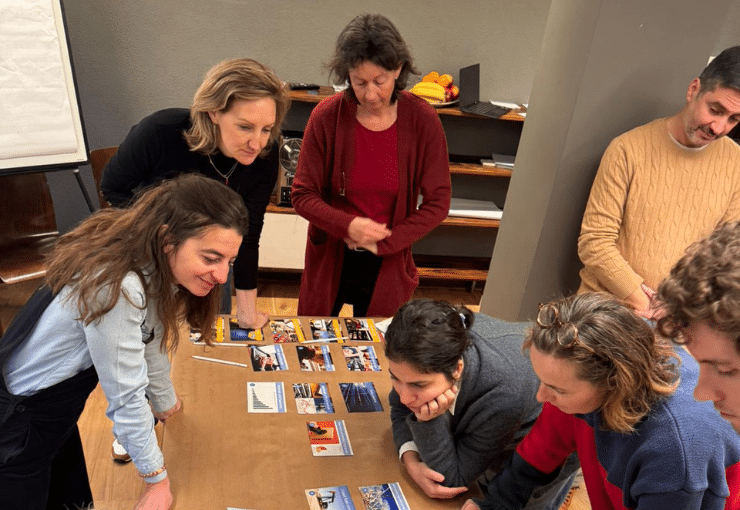Our analysis of the draft GFF strategy 2026-2030
Primary healthcare
The GFF reaffirmed its focus on primary healthcare (PHC). We are pleased to see PHC positioned as a foundation for achieving UHC and equitable access to quality healthcare — especially for women, adolescents, and underserved populations.
Alignment
Importantly, the draft strategy recognizes the need to align financing with national health plans. It mentions commitment to alignment with country systems, mapping donor resource streams, and bringing external financing on budget. This echoes the spirit of the “One Plan – One Budget – One Report” approach, which was at the core of the GFF Alignment Framework 2021, even though it is not explicitly mentioned. It reflects our recommendation to consolidate support for system-wide improvements and country ownership.
Equity
It is positive that the draft strategy gives increased attention to sexual and reproductive health and rights (SRHR), gender equality, and addressing inequalities. It acknowledges global backsliding on SRHR and commits to helping countries uphold and expand access to key services. This is consistent with our call to protect and promote SRHR, especially in fragile contexts. The draft strategy also makes equity and gender a cross-cutting theme, with repeated references to supporting “the poorest and most disadvantaged women and adolescents”, addressing gaps between rich and poor, and targeting conflict-affected and climate-vulnerable settings. We welcome the key performance indicators on gender equity, as well as the commitment to conduct rapid gender diagnostics in all partner countries to identify and integrate gender in priority reforms at national level.
However, while the draft strategy speaks of equity, it would benefit from explicitly integrating intersectionality — acknowledging how overlapping vulnerabilities (e.g. gender, geography, disability, age) impact access to care. The draft strategy speaks of “populations lagging furthest behind” and reducing inequalities (e.g. based on income), which is consistent with equity, but not necessarily the full conceptual scope of intersectionality. We urge the GFF to move from general equity framing towards more granular, data-informed approaches that identify and address these intersecting barriers and do not let people slip between the cracks.
Domestic resource mobilization and political economy
The draft strategy rightly emphasizes the importance of domestic resource mobilization (DRM) for sustainable health financing. Strengthening public financial management and health budget advocacy at country level is essential, and the strategy draft shows intent to build on lessons from some GFF countries.
However, the GFF could take a bolder stance. In the face of shrinking aid budgets and growing debt burdens, technical support and better public financial management alone will not suffice. What’s needed is political leadership: global advocacy for progressive taxation, tax justice, and curbing illicit financial flows which continue to drain domestic revenues. Without these political economy elements of DRM, the strategy risks underestimating the structural barriers countries face in expanding public financing for health.
We encourage the GFF to use its convening power and multilateral platform to join forces with global movements for international tax cooperation, fair taxation and debt relief, ensuring that health systems are financed through just and sustainable means.
Private sector engagement
The GFF positions the private sector as a key partner in reaching UHC and expanding access to services. It references efforts to integrate private providers into the public financing schemes in alignment with national equity goals.
The strategy is noticeably silent on blended finance models while this area was prominent in the previous strategy. Moreover, blended finance was highlighted in both the GFF’s independent evaluation and civil society analyses of GFF’s engagement with the private sector, for example the report by Akina Mama wa Afrika and Wemos on the Africa Medical Equipment Facility (AMEF). Wemos found that the AMEF (financed by the GFF and carried out by the World Bank’s International Finance Corporation) insufficiently aligned with priorities on Reproductive, Maternal, Newborn, Child and Adolescent Health and Nutrition (RMNCAH-N) and was unlikely to contribute to universal and equitable access to healthcare services for all people.
The absence of an explicit reference to blended finance in the new strategy may signal a more cautious or reflective stance from the GFF — possibly a result of these critical findings. This creates an important opportunity: to rethink how and when the private sector is engaged, and to ensure that any financing or delivery models involving private actors are evidence-based, equity-driven, and with strong safeguards and accountability mechanisms in place.
Commodities and supply chain
The draft strategy places strong emphasis on health system resilience, particularly in improving commodity access, strengthening supply chains, and ensuring that systems can withstand shocks such as climate impacts, pandemics, and conflicts. The draft includes a “Commodity Access Challenge” (Objective 2) aimed at helping countries improve equitable access to essential health commodities, while also strengthening domestic financing for supply chain capacity.
This shows that the GFF is aware of the fragility in supply chains and the importance of dependable access to medicines, diagnostics, and other health essentials. It aligns with broader demands for health sovereignty and supply chain resilience, particularly since interruptions during global crises have had severe impacts on underserved populations. However, the draft strategy is quiet on regional manufacturing, local production of medicines or diagnostics, and technology transfer. These are crucial elements in creating sustainable supply chains and reducing dependence on external supply, and GFF can keep them on the agenda of joint efforts with other global health initiatives.
Civil society and youth engagement
We welcome the GFF’s continuing recognition of civil society and youth as important partners in governance, planning, and accountability. They are included as stakeholders in “Strategic Enabler 2,” aimed at strengthening multistakeholder collaboration. have involved these groups, and earlier GFF documents (such as the Civil Society Engagement Strategy of 2017) articulate the roles civil society can play. These commitments reflect a shift toward more inclusive governance, in line with Strategic Shift 4 of the Lusaka Agenda. The establishment of GFF Country Coordinators is also welcome, as this can strengthen civil society engagement in-country.
Of course, dedicated and long-term resources are always necessary to ensure that civil society participation is not symbolic or tokenistic. We will continue to monitor the new GFF-CIVIC civil society platform as it kicks off.
In addition, we emphasize the importance of supporting advocacy for SRHR, especially in contexts where these rights are under threat. The draft strategy includes SRHR as a priority area, but lacks sustained support for local advocates while this is crucial to enable effective advocacy in the GFF countries.


 The draft strategy is currently open for
The draft strategy is currently open for 

